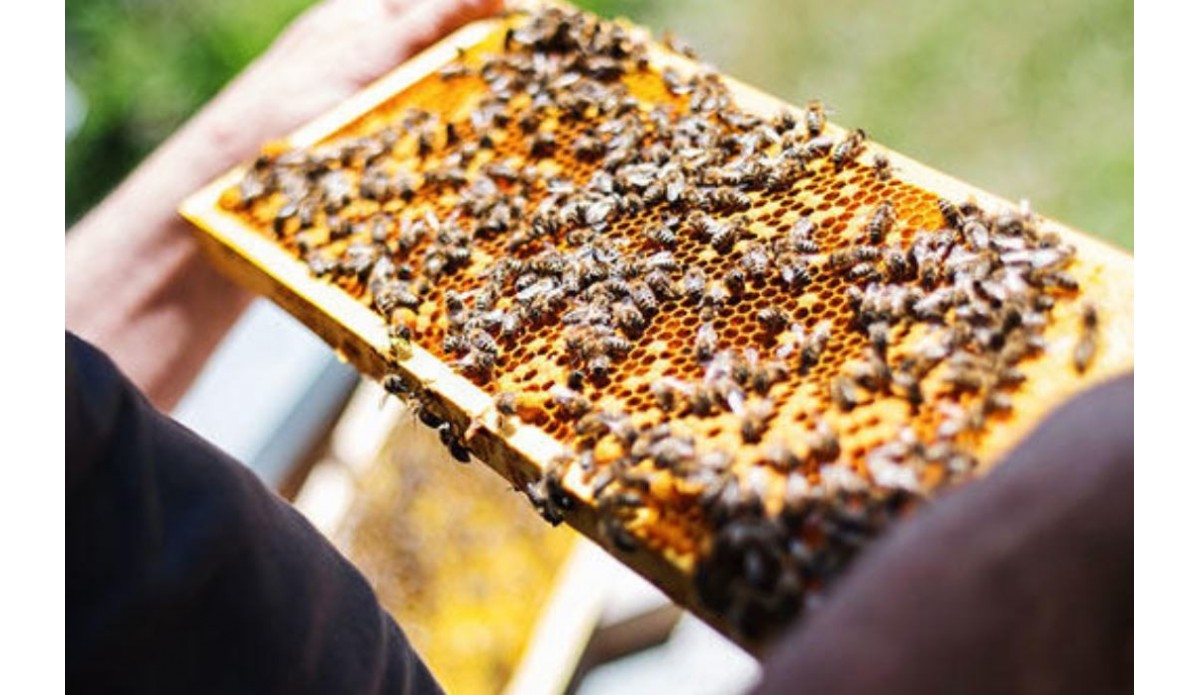Activities and products related to bees

Beekeeping and much more
When we think of bees, the production of honey by beehives taken care of by beekeepers usually comes to mind. In fact, we find countless types of honey, such as rosemary, heather, chestnut, acacia, orange blossom, eucalyptus, thyme, lavender, linden, clover, clover, dandelion honey, Pine, oak, fir, buckwheat, hazelnut, ulmo, manuka ...
Apart from honey, we also find many other products resulting from the direct action of the constant work of bees, such as pollen, royal jelly and propolis. These 3 products can be produced and put on the market directly through the previous preparation process required by each product or be part of other more elaborate products that contain pollen, royal jelly or propolis as star products.
Even virgin beeswax is an indispensable product to mention and that is an intrinsic part of the same honey production process by the honey bee. Virgin beeswax serves as the basis for a multitude of products and industries, such as the textile and footwear industry, decoration and furniture and its maintenance, pharmaceutical, beauty and cosmetics industry, candle production and manufacturing, etc.
Another product less known to the general public is bee venom. Bee venom or apitoxin, currently serves as a research base to try to develop different types of medical treatments related to its analgesic, and anti-inflammatory action, and to look for possible treatments for some of the most widespread diseases of our time (such as rheumatism , osteoarthritis, etc.). In addition, bee venom is already part of the ingredients of some of the beauty and cosmetic products found in stores specializing in cosmetic products.
But apart from the products coming directly from the tireless work of the bees, we also find other services directly related to the bees, such as the pollination services of crops and greenhouses that the bees (and bumblebees) do for all the provinces of Spain. The beekeeper can complement his economic activity in the beekeeping sector with pollination services in nearby crops and well connected to his apiary or habitual residence.
In addition, another very interesting activity (also depending on the experience and training of the beekeeper) is that of queen rearing. This activity requires prior knowledge and experience as it is a highly specialized activity (more if we refer to using artificial insemination techniques of queen bees).
It is also important to note that there are services related directly to beekeeping such as training courses for beekeepers (beginner, amateur and professional beekeepers). These beekeeping courses are essential for the beekeeper to continue training and improving management and techniques that will help him be more productive and that his bees have greater well-being.
It should be said that the beehive manufacturing industry is a very important sector and closely related to beekeeping, since the beekeeping sector is in constant innovation and the industry that produces beehives and beekeeping material has to be attentive to the changes and innovations of the sector .
Finally, we must remember that bees and the practice of beekeeping can give us great opportunities to complement our economic activities such as beekeeping tourism (both if visitors go to the apiary, as if the beekeeper goes to a specific place agreed with the company or group that organizes the visit) and urban beekeeping (installation of hives, training of the personnel that will maintain and manage them, and maintenance and consulting services for the hives installed).
We hope that with this short article we have been able to give a slightly more global vision of the products that include beekeeping and services related to the beekeeping activity.
Mundoabejas.com team







Comments
No comment at this time!
Leave your comment